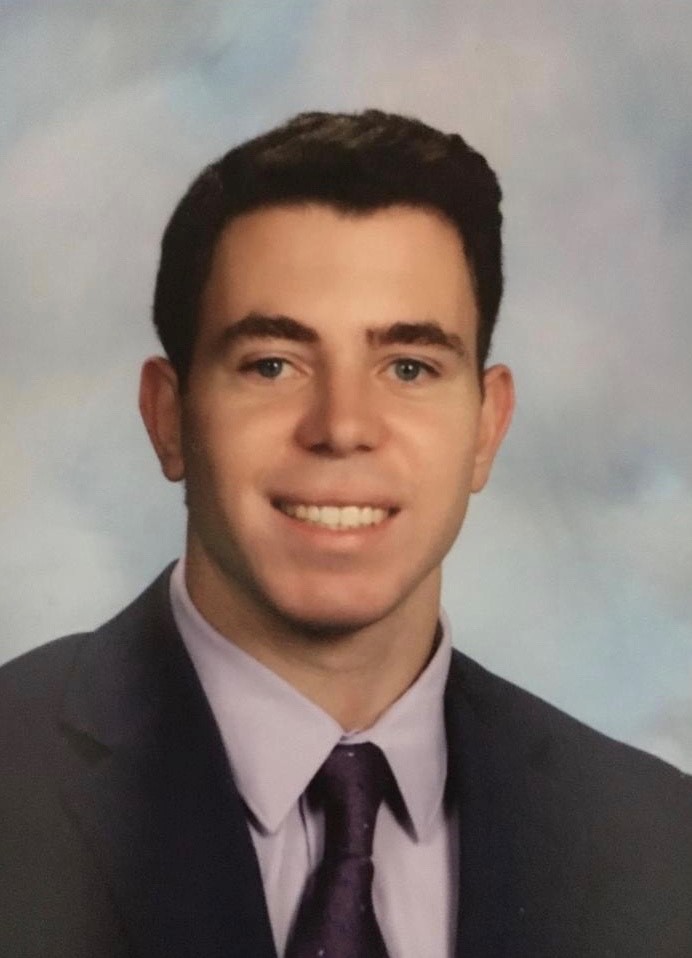|
This continuing series introduces you to a number of men and women, early in their careers, whose academics have been rewarded by the LSRPA. They are the future of the environmental profession.
 Joaquin “Jack” Cambeiro Joaquin “Jack” Cambeiro
Out of 21 applications received, the LSRPA awarded nine scholarships at its annual conference in February 2020. Joaquin “Jack” Cambeiro, then a senior at Rutgers University in Newark, was one of them.
“To receive the scholarship, just being recognized by a prestigious organization like the LSRPA and my school; it was a proud moment to have all that hard work to be recognized by others,” he said.
Cambeiro completed his work at Rutgers in January 2020, shortly before the award of the scholarship. He majored in geoscience engineering and ended his academics with a 3.98 cumulative average. In 2018, he presented a paper at a conference of the American Geophysical Union.
Like so many students in the year 2020, his graduation was online.
Cambeiro actually was awarded the scholarship on his second attempt; he didn’t get it in his junior year. He learned of the scholarship though his academic advisor at Rutgers-Newark, Dr. Alexander Gates.
Benjamin Alter, LSRP, a senior vice president of GZA who founded the LSRPA College Outreach Committee, said word of the scholarship is sent out through student members of the LSRPA, who are asked to speak with their classmates. Professors at about 10 colleges also are asked to post notices about the scholarships in their departments.
The outreach has increased the number of applicants. “We were literally able to double the number of applications last year, and more than doubled it again this year.” Alter said. “The applicant group continues to grow in diversity.”
What does Cambeiro think put him on top for his scholarship application? He’s not really certain but it may be his experiences.
Cambeiro said he was working as an undergraduate research assistant and his principal investigator worked along with national laboratories sampling many different sites, including the Naval Air Warfare Center outside of Trenton. Once a home to jet engine testing, Cambeiro said they collected cores for testing soil contamination and analyzed geophysical properties to understand the groundwater migration pathways at the site.
An avid sports enthusiast, Combeiro plays basketball, soccer, and tennis. Or he did. It’s harder now with COVID-19. He lives in Kearny, spends time with family and enjoys hiking.
Cambeiro said he chose his major – geoscience engineering – because he was “looking for something that would get me outside.” He was an intern with Langan in the summer of 2019 and again in the fall. After graduation, Langan’s New York City office hired him full-time.
And then everything shut down. Like most people in the pandemic, he actually works mostly from home. When he performs field work, he works across the five boroughs of New York, completing waste characterization, subsurface investigations and other analysis in preparation for remediation.
In the beginning of the pandemic, there was one advantage. No traffic. “It’s been interesting to say the least,” he said.
 Laurel Klein Laurel Klein
GZA GeoEnvironmental employs Laurel Klein, but the field is often where she works, collecting and collating chemical data from soil and groundwater samples. Assessing, interpreting and presenting. That’s the crux of the job.
Klein was awarded the LSRPA scholarship in 2019 at the LSRPA annual conference and GZA offered her a job during the conference, one of two job offers she received that night.
The scholarship was a big part of getting the job she has now, Klein said.
“I think that it put me in a different category than people who just got their degree. It showed I was an active member of environmental science.”
And one of the reasons she knew about the scholarship was Chuck Appleby, chief of the Military and Veterans Affairs Environmental Management Bureau.
For any student, mentors are as key to success as intelligence and hard work. They show how the world works and what it takes to move forward. For Klein, the path started with an internship program Stockton University and working with Appleby.
An LSRP overseeing remediation at New Jersey military properties, Appleby introduced Klein to environmental field work and the LSRPA scholarship. And through the scholarship, Klein was introduced to people at the LSRPA conference.
Stockton’s Environmental Internship Program works in collaboration with the New Jersey Department of Military and Veterans Affairs Environmental Management Bureau, to support clean up, pollution prevention, and conservation at the state’s national guard and veterans facilities. Students receive real-world experience and on-the-job training in environmental concentrations such as environmental compliance, conservation, remediation, wildlife management, and land management.
John Hallagan is the intern advisor for Stockton.
And what do the interns do? “They really learn a lot. They’re not making coffee or filing,” Appleby said.
Depending on the project, interns will learn the environmental regulations for each site, including specific requirements of the various military services, the EPA and the State of New Jersey. They also may be going through historic construction drawings and looking for potential areas of concern, including septic fields and storage facilities.
During her time in the program, Klein worked at identifying rare species at military sites, measuring air emissions and taking water samples, and taking a survey of tree frogs at specific locations in the Pine Barrens.
With these skills as a base, Klein’s work at GZA includes a variety of projects and a better understanding of environmental requirements in New Jersey, Maryland, Pennsylvania, Connecticut, Rhode Island and Michigan.
Training and finding jobs for the interns after graduation is the goal, Appleby said.
“We just hope when they graduate from our program and graduate from Stockton that they can succeed at a place and stay there for long time,” he said. “If you are successful at something you do, it’s a vocation, not a career.”
|
 Joaquin “Jack” Cambeiro
Joaquin “Jack” Cambeiro Laurel Klein
Laurel Klein